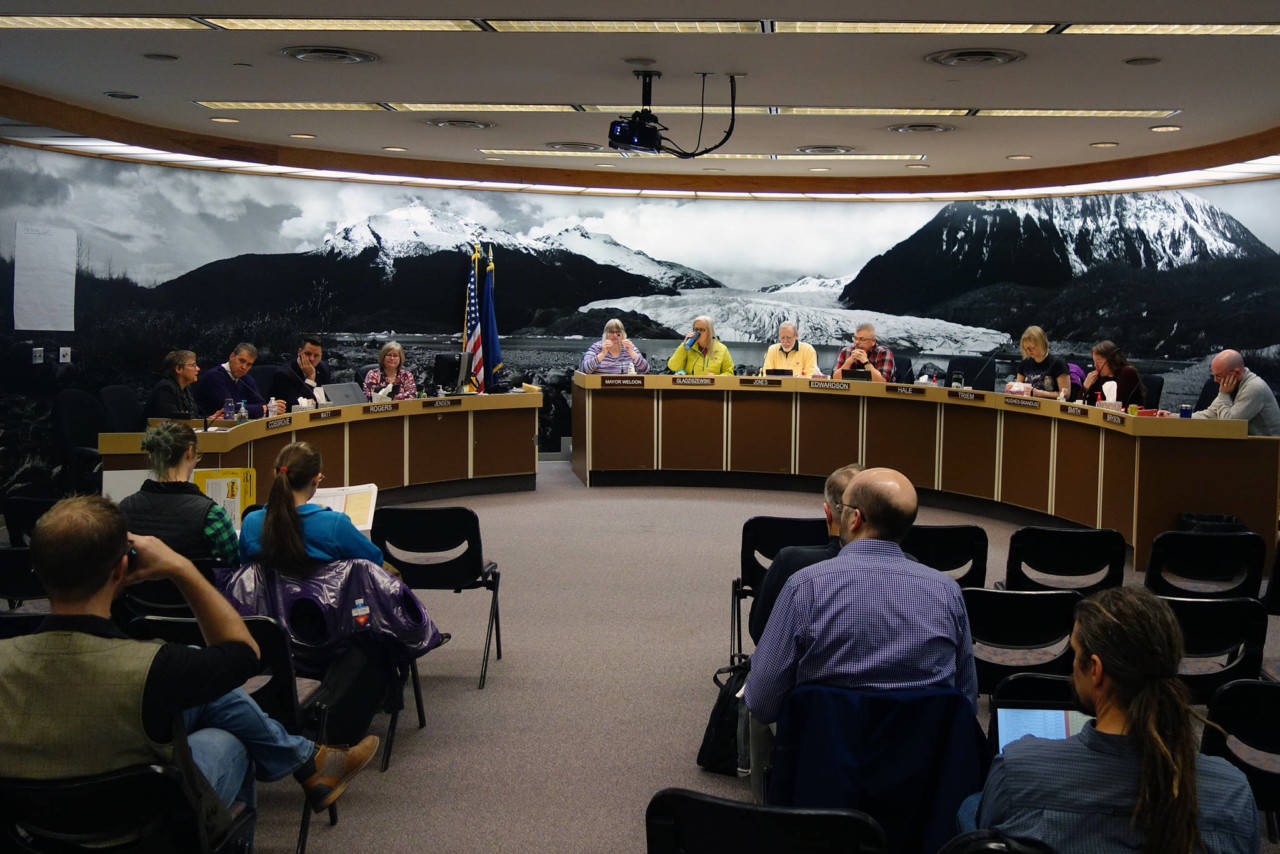In what has historically been a rather lackluster and tedious process, this year’s City and Borough of Juneau’s budget cycle has raised a keen level of interest in its outcome. With further cuts at the state level expected next year and an unsustainable imbalance of expenses and revenues at the local level, our elected officials face tough choices.
It’s not clear where they are headed.
Recognizing the fiscal challenges and the newness of recently elected assembly members, CBJ staff began tackling budget issues by developing a Fiscal Sustainability Process. The goal of the process is for the Finance Committee to provide direction to the city manager in advance of the FY21/22 budget. Some major issues at hand include school repairs and debt reimbursement, adding child care as a significant ongoing expense, and Centennial Hall funding.
So far, the Finance Committee has reviewed CBJ’s revenue sources and debt capacity, and operating/capital expenditures, program by program — labelling each as mandatory, essential or discretionary.
At the Nov. 2 meeting, the Finance Committee examined each of the members’ rankings of 80 different programs and projects. (Mandatory, Full Cost Recovery and Internal Support/Service Programs were not ranked).
Results were mostly what you might expect. Discussion centered around so-called low-priority discretionary expenditures aggregated at the bottom of the list.
Public safety (JPD Patrol) was the highest-rated essential service at #1. School CIP/Maintenance was the highest-rated CIP project at #10. Transit services were the most valued “discretionary” program at #30. Ranked in the bottom half were discretionary programs such as those under Parks and Recreation, Eaglecrest Ski Area and all three public libraries.
A couple surprises were the current $630,000 support for child care programs at #34 and proposed $1,000,000 child care support at #36 — both discretionary — a ranking placing them ahead of essential services like Street Cleaning at #46 and Downtown Parking at #73. At least one member commented that after a $400,000 hike in child care support this year that a $1 million escalation next year was too much and should be scaled back.
• Another interesting discussion focused on 23 different “revenue concepts” provided by committee members. If at least five members favored continuing discussion on an item, it was added to a “Revenue List” for further review. This winnowed the list down to eight ideas (with estimated potential tax revenue).Additional 1% seasonal sales tax ($6.1 million)
• Taxing sales by/to nonprofit organizations ($2.6 million)
• Taxing on-board cruise ship sales ($636,000)
• Raising property tax by .1 mil ($500,000)
• Sales tax holiday — last Sunday in February
• Eliminating sales tax on food — offset by 1% seasonal sales tax
• Raising sales tax purchase cap/single service cap
• Collecting online sales tax ($1.5-$5 million)
The collection of sales taxes for online purchases may be controversial, but I believe this should be pursued. Aside from the potential revenue, it helps level the playing field for local businesses that must compete with internet retail giants.
To this list, I would only add consideration of tribal entities such as Tlingit-Haida Central Council. Currently exempt from collecting sales taxes, their recent new business activity (coffee shops and tourism venues) in Juneau compete directly with local businesses.
Another decision confronting CBJ is what to do about Centennial Hall. In last month’s election, voters authorized a $7 million bond issue and a 2% hike in bed tax to benefit Centennial Hall. Another $4.5 million in sales taxes had previously been approved. Together, these funds will pay for the major portion of a recommended $18 million in repairs and upgrades. This should provide Centennial Hall revenue opportunities and reduce their existing subsidy. The Assembly would be wise to fully utilize these funds as intended.
While actual budget decisions won’t be made until later in the process, this is when ideas and concepts are being formulated.
Assembly members must balance reliance on revenue measures with serious efforts at controlling expenditures. That means not just limiting discussions to cutting low priority items but also delivering services more efficiently and monitoring whether results are being achieved. This is particularly true with spending on schools and social services like childcare.
These issues raise tough questions — and even tougher choices to make.
• Win Gruening retired as the senior vice president in charge of business banking for Key Bank in 2012. He was born and raised in Juneau and is active in community affairs as a 30-plus year member of Juneau Downtown Rotary Club and has been involved in various local and statewide organizations. Columns, My Turns and Letters to the Editor represent the view of the author, not the view of the Juneau Empire.

